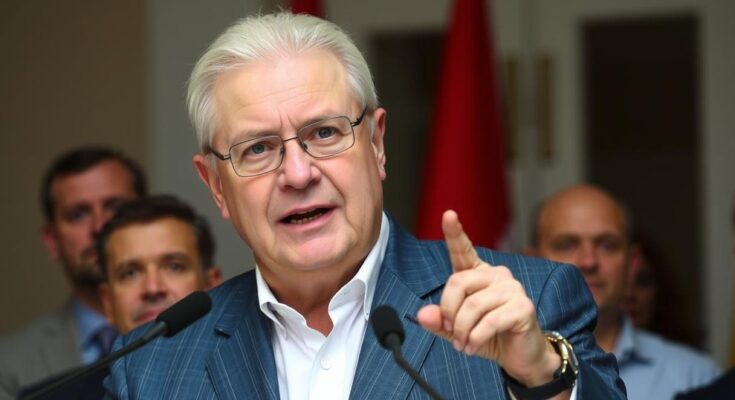Croatia’s incumbent President Zoran Milanovic has won approximately 49% of the votes in the initial round of the presidential election but must compete in a runoff against ruling HDZ party candidate Dragan Primorac, who garnered 19%. Pre-election forecasts indicated that no candidate would attain the majority required, leading to a second round scheduled for January 12.
In Croatia’s recent presidential election, incumbent President Zoran Milanovic emerged as the frontrunner during the first round, amassing approximately 49% of the votes. However, this was insufficient for outright victory, necessitating a runoff against Dragan Primorac, the candidate from the ruling HDZ party, who secured around 19% support. Polls prior to the election had suggested that neither of the eight candidates would achieve the required 50% threshold, predicting a second round set for January 12.
Presidential elections in Croatia consist of multiple rounds if no candidate achieves a majority in the initial vote. The political landscape is shaped by various parties, with the HDZ being a prominent ruling party. The election occurs against a backdrop of public interest in governance, following political developments and societal issues within the country, which often influence voters’ decisions. Runoff elections are common in such scenarios to ensure a decisive outcome.
In summary, while President Zoran Milanovic demonstrated significant support during the first round of voting, he will face challenges in the upcoming runoff against a determined rival from the ruling party. The election outcome reflects the diverse political sentiment within Croatia, setting the stage for a critical showdown on January 12. This electoral process underscores the importance of voter engagement and the dynamic nature of political competition in Croatia.
Original Source: www.wdrb.com




